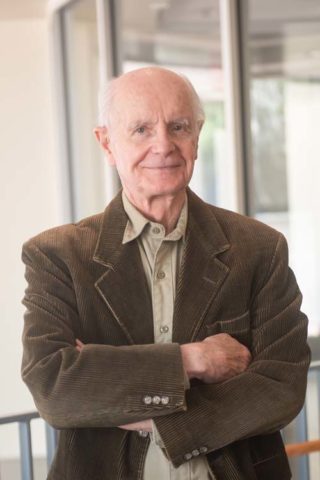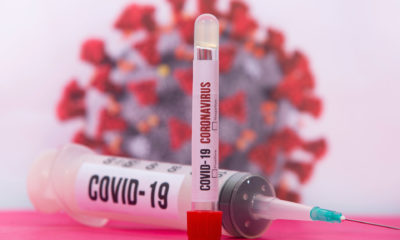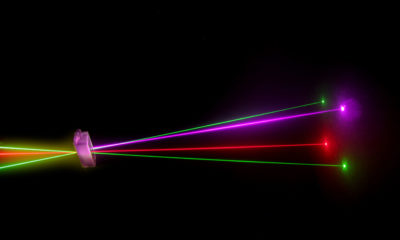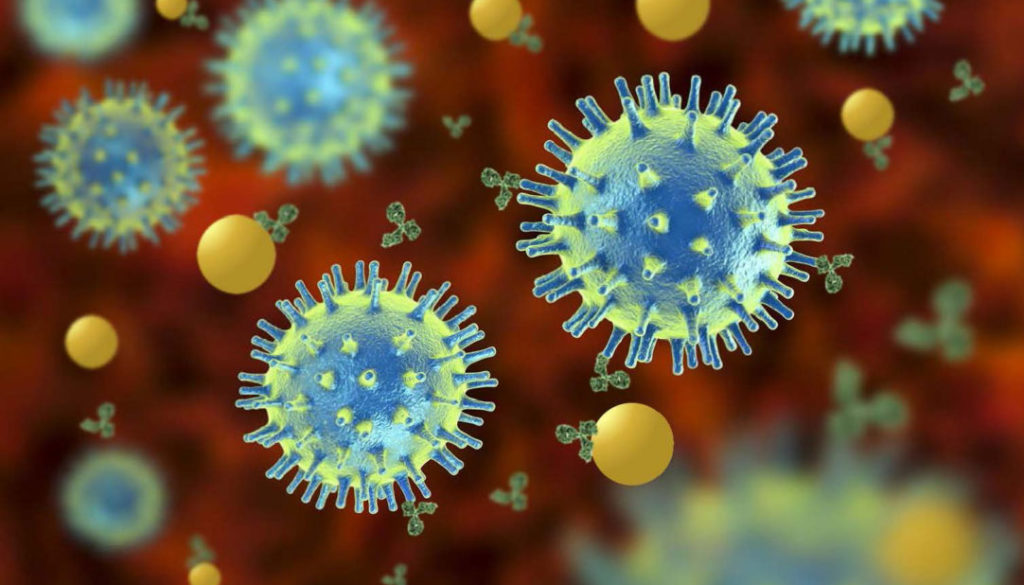Texas A&M Institute for Quantum Science and Engineering to Host Virtual Summer School on COVID-19
Since the early 1980s, Texas A&M University physicist and quantum cowboy Marlan O. Scully has hosted an annual summer school on quantum physics at his ranch in Casper, Wyoming. Like so many other traditional events, however, this year’s session set to begin next week has been moved online due to the novel coronavirus pandemic — a scheduling snafu with a silver lining of sorts, because it has opened up the typically invitation-only summit to the general public for the first time in its history, thanks to Zoom.
Online registration is encouraged for the two-week virtual event, “New Trends in Quantum Physics: From Quantum Optics to COVID-19 and Biophotonics,” set for July 27 through August 7 within Texas A&M’s George P. and Cynthia Woods Mitchell Institute for Fundamental Physics and Astronomy. All talks are open to the public free of charge, both on-site and via Zoom.

The star-studded SS2020 lineup features multiple Nobel Prize recipients and National Academy members as well as opening remarks from Texas A&M University System Chancellor John Sharp. In addition to presenters from myriad disciplines across the three institutional sponsors — Texas A&M University, Princeton University and Baylor University — the event will showcase both national and international representatives from academia, research laboratories and industry who will cover topics spanning the application of quantum physics to COVID-19 and related diseases.
Scully, a distinguished professor of physics and a National Academy of Sciences member, serves as director of the Texas A&M Institute for Quantum Science and Engineering, which has quietly become a global leader in COVID-19 research during the past five months. By tweaking the same Raman spectroscopy-based technology they developed at the turn of the 21st century using a sequence of lasers and resulting scattered light patterns to create a molecular “fingerprint” capable of distinguishing a single molecule from every other molecule, they are helping to close the gap on the novel coronavirus in much the same way they did with anthrax in 2001.
“We were the first to detect anthrax in real time 20 years ago,” Scully said. “By adjusting the parameters of that technology, known as FAST CARS, we found we could trace and map out the surface of a single virus. We were also invited to join an international group on COVID-19 research that is studying the COVID-19 problem using cutting-edge science and technology.
“Viruses are hundreds of times smaller than a single red blood cell. To be able to trace and map them requires specialized technology, which we have because of Chancellor Sharp and a 2013 Chancellor’s Research Initiative award that helped us establish a biophotonics center to bring together interdisciplinary researchers from across the campus and around the world to solve major scientific challenges.”

Scully has pioneered many previous scientific breakthroughs through the decades, including slowing the speed of light to the snail-like pace of 10 miles per hour, making revolutionary lasers without population inversion and showing how quantum mechanics can yield a class of novel quantum heat engines. But nothing excites the veteran scientist and inventor quite like the prospect of seeing his students and fellow researchers recognized for their efforts, which is why he says it’s all the more fitting that SS2020 will be taking place right here in Aggieland.
“This is where world-class research is going on,” Scully said. “All of our students and faculty have been going 24/7 since January, and I’m pleased that they will get a chance to share their progress on such a critical front with both a local and global audience.”

All SS2020 talks will be delivered by Zoom within the Mitchell Institute’s Stephen W. Hawking Auditorium from 8:30 a.m. to 12:30 p.m. each week, Monday through Friday. Each 30-minute presentation will be accessible via remote login, the details of which will be emailed to registered participants prior to the event. Talks also may be attended in person, where social distancing requirements, including masks and face coverings, will be in effect.
SS2020 also will include a virtual poster presentation, complete with online voting for registered attendees to help determine the winning entries.
# # # # # # # # # #
About Research at Texas A&M University: As one of the world’s leading research institutions, Texas A&M is at the forefront in making significant contributions to scholarship and discovery, including that of science and technology. Research conducted at Texas A&M represented annual expenditures of more than $952 million in fiscal year 2019. Texas A&M ranked in the top 20 of the National Science Foundation’s most recent Higher Education Research and Development survey (2018), based on expenditures of more than $922 million in fiscal year 2018. Texas A&M’s research creates new knowledge that provides basic, fundamental and applied contributions resulting, in many cases, in economic benefits to the state, nation and world. To learn more, visit Research@Texas A&M.
-aTm-
Contact: Shana K. Hutchins, (979) 862-1237 or shutchins@science.tamu.edu or Kimberly Chapin, (979) 845-1534 or k-chapin@tamu.edu
The post Texas A&M Institute for Quantum Science and Engineering to Host Virtual Summer School on COVID-19 appeared first on Texas A&M College of Science.
